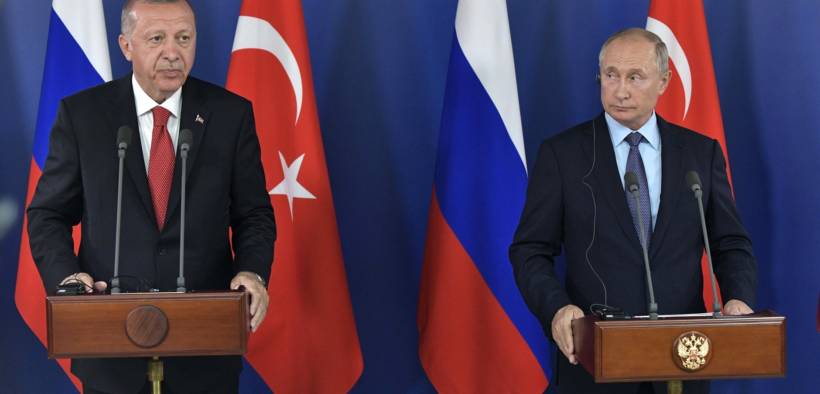Russia Scores Breakthrough in Libya – Ceasefire Terms Agreed To

Libya’s warring parties are expected to sign a ceasefire and a ‘political settlement’ that will resolve the country’s seven-year-long civil war on Tuesday.
Following intense negotiations in the Russian capital, Moscow this Monday, Libya’s warring parties: Fayez al-Sarraj, head of Libya’s UN-recognised government, and his rival, General Khalifa Haftar finally agreed to the terms of a Russian and Turkish sponsored truce – putting an end to months of increased violence and political volatility.
While the agreement has yet to be formally signed by all before being fully implemented, sources close to the deal have confirmed that both military rivals have vowed to finalize all outstanding issues on Tuesday. So far only Fayez Al Sarraj signed the draft ceasefire agreement, while Khalifa Haftar – commander of the eastern-based Libyan National Army (LNA) – requested more time to consider it.
“They have a positive view of the document and asked for extra time until the next morning to decide,” Russian Foreign Minister Sergey Lavrov said of Hafter and his delegation before adding, “I hope they will make a positive decision. Russian and Turkish representatives will continue to offer their assistance.”
Beyond a simple ceasefire, both Libyan leaders will also be committing to a political settlement that aims to “resolve the current power deadlock,” said Mehmet Cavusoglu, the Turkish foreign minister this Monday in comments to the press.
Both Turkey and Russia have been keen to reaffirm their commitments to peace in Libya through careful political mediation so as to protect and guarantee Libya’s territorial integrity and sovereignty.
It stands to note that just as the United States is looking to disengage from the MENA region (Middle East and North Africa), both politically and militarily, Russia has vied for more influence, more often than not with the full backing of Turkey – a key strategic regional partner.
Monday’s breakthrough is likely to further consolidate Russia’s position as a powerful and trusted peace broker – while evidently advancing Moscow’s ongoing pursuit to control energy markets.
Oil-rich Libya has been ravaged by a deadly civil war since the fall of its former strongman, Muammar Gaddafi in 2011. Broken up alongside military lines, Libya has been locked between two competing political ambitions, very much in line with the ongoing regional geopolitical thaw.
The GNA, backed by Turkey and Qatar, and Haftar’s Libyan National Army, backed by Egypt, the UAE and Saudi Arabia, agreed to a conditional truce called by Russia and Turkey that came into force at midnight local time on Sunday.
Intense fighting flared up in Libya last December after General Haftar’s forces closed in on Tripoli, putting tens of thousands of civilians in the firing line.
In early January, to much international consternation, Turkey announced it was sending troops to Libya to support Al Sarraj, and as Turkish President Recep Erdogan stressed out to CNN Turk TV channel, “to support the legitimate government and avoid a humanitarian tragedy.”
Although seldom talked about, Libya’s instability could soon prove to be yet another catalyst for a regional power struggle for control – notwithstanding fears that any political vacuum will encourage Islamic militants to carve out pockets of influence on Europe’s doorstep.
More to follow …









